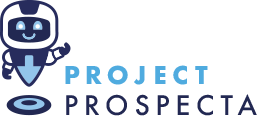Creating a mature and established lead generation strategy will guide your business, through the marketing and sales process, and be a detailed plan to direct your building products company towards success.
What is a lead generation strategy?
The strategy is the beginning of generating leads for your sales team to convert. It needs to encompass marketing and sales and be linked to your overall business goals. It can be split up into a clear set of themes that describe the pathway for the rest of the process, this includes:
- Mission
- Vision
- Goals
- And much more!
48% of respondents to a recent study describe their B2B lead generation strategy and planning as advanced, (London Research, The State of B2B Lead Generation). Highlighting the importance of creating a culture that uses a strategy to focus you, as you manage and handle lead generation whether they come from Barbour ABI, Glenigan or another source! Stick to your strategy and you’ll get a greater understanding of where your building products business is going.
What goes into your strategy?
Vision and Mission
A company’s mission is described as how your business would look in an ideal world, and the mission is the action you’re going to take to achieve this. Understanding both of these gives you and everyone at your company a clear end goal. For lead generation, it is vital to understand the volume of leads that you need to generate at each stage of your journey to achieve your vision.
SMART Goals
These are targets that specify what you want to achieve within a timescale. SMART stands for:
- Specific– What do you want to achieve?
- Measurable– How will you track your progress?
- Achievable– Is it realistic?
- Relevant– Does it encompass what’s happening in your industry right now?
- Time-Based– How long will you take to achieve it
The goals you set need to show how marketing has directly increased sales, otherwise, it’s difficult to see the benefits of marketing and ROI of your activity. Sales goals are set and tracked using well-established industry-wide methods; marketing goals can also be like this, Examples of KPI’s to understand lead generation are:
- enquiry to order conversion rate
- average order value
- monthly enquiry volume
Goals create a structure for your strategy and direct your operations to ensure you achieve success.
Buyer Personas
A buyer profile is a semi-fictional representation of a customer that your building products company would like to sell to. They’re created using data such as location and company type. To create them you’ll need to understand what makes your potential customers tick and how you can leverage this to grab their attention. At the very least, you need to include the type of customers you want and how your company will fulfil that.
Any content which you create needs to be done with these buyer profiles in mind. So make sure you’re creating helpful content to assist them in their research and become more likely to interact with your building products business. In lead generation, this means encouraging them to fill out forms, pick up the phone or submit enquires to your site.
Buyer’s Journey
Once you’ve created your buyer persona’s you can map the buyer journeys that customers will take when interacting with your business, which encompasses 3 stages:
- Awareness– When a person first discovers your company
- Consideration– When a person takes interest in your company
- Decision– When a person decides to buy from you
Consideration and awareness belong to your marketing team; they should market the right content to the right buyer and move them through the journey. You’ll need to ensure that your site is loaded with the right content and information to give you the competitive advantage.
In the decision stage, the buyer is ready to make a purchase and speak to your sales team. To increase chances of conversion the buyer has to be properly nurtured in the previous stages to make this successful.
The buyer’s journey is different for every company. And a customer may stumble across your company at any stage of their journey so it’s vital to have content for each stage. You should map it out for each buyer persona to better understand how to market to them. The more focused your marketing; the better your chances of generating quality leads.
Conclusion
Developing a strategy is one of the most important aspects of developing your lead generation campaign. It is your starting block for the entire process and guides you along the way.
Your strategy is made up of several factors beginning with your building product’s company’s vision and mission.
You should couple this with your buyer personas and map out their journey, to guide how you will target your content later in the process.
Would you like to find out more about how lead generation can help you grow better?
Click the button below to book a demo today!



